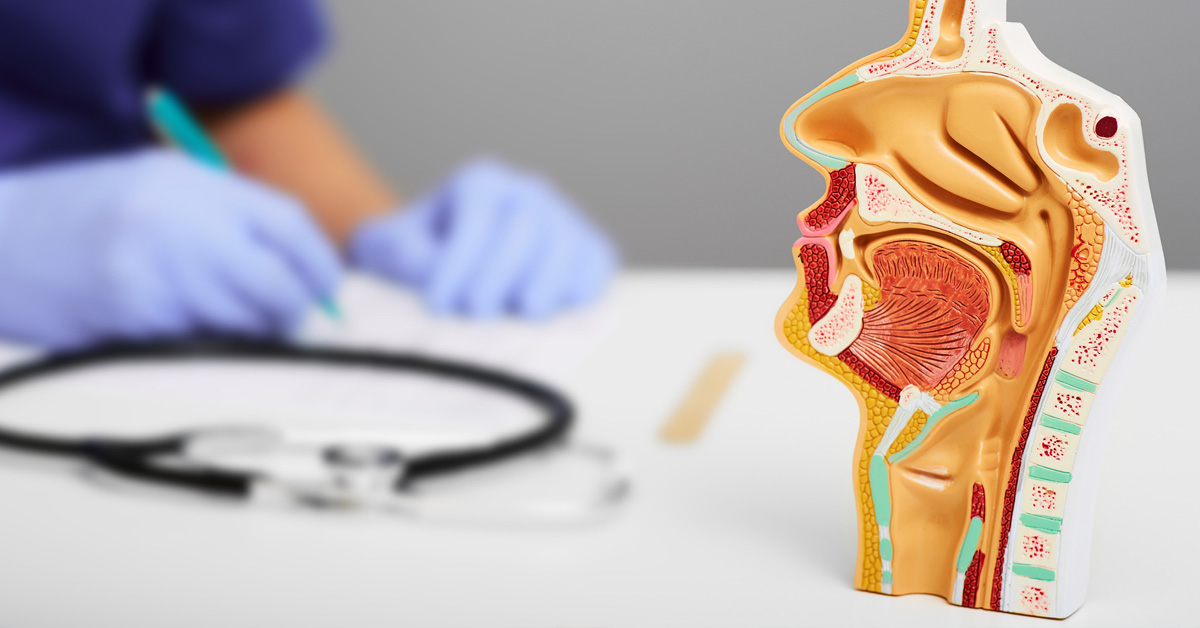Discovering the Area of Otolaryngology: What to Anticipate When You Seek Advice From an ENT
Otolaryngology, commonly described as ENT, encompasses the medical diagnosis and treatment of ear, nose, and throat problems. For those experiencing relevant problems, getting in touch with an ENT professional can give clearness and alleviation. Recognizing what to expect during such examinations is vital for reliable interaction and treatment. This overview will detail key facets of the ENT experience, including common factors for check outs and the procedures associated with medical diagnosis and treatment.

Comprehending Otolaryngology: A Summary
Otolaryngology, usually described as ENT (Nose, throat, and ear) medication, is a customized branch of medicine that focuses on the medical diagnosis and treatment of problems influencing these crucial locations of the human body. This field includes a wide variety of problems, including those associated to hearing, equilibrium, respiratory system feature, and speech. Otolaryngologists are educated to manage both surgical and clinical therapies, using advanced techniques and technologies. Their proficiency extends beyond standard conditions, attending to problems such as allergies, sinus infections, and hearing loss. Additionally, they play a crucial function in the administration of head and neck cancers, supplying thorough treatment customized to private person demands. Overall, otolaryngology continues to be vital for preserving health and lifestyle in affected individuals.
Usual Factors to See an ENT Professional
Many people seek the proficiency of an ENT professional for a range of factors, mirroring the varied nature of problems that affect the throat, ear, and nose. Common issues consist of persistent sinus problems, which commonly leads to relentless nasal congestion and facial discomfort. Allergies and their linked signs and symptoms, such as itching and sneezing, additionally motivate sees to these experts (Otolaryngologist). Hearing loss, whether steady or abrupt, is another significant reason for consultation. Furthermore, individuals may seek analysis for throat problems, including persistent hoarseness or ingesting troubles. Sleep apnea, characterized by disrupted breathing throughout rest, is often attended to by ENT experts. Each of these conditions highlights the significance of specialized treatment in taking care of complex ENT-related health and wellness issues
Preparing for Your ENT Visit
When planning for an ENT consultation, it is necessary to gather relevant info and think about any details problems. Clients must assemble an in-depth clinical history, including previous ear, nose, or throat problems, surgeries, and present medications. Documenting signs and symptoms-- such as severity, frequency, and duration-- can give valuable insights for the ENT expert. In addition, people should prepare a list of concerns they want to ask, guaranteeing that all issues are resolved throughout the check out. Bringing along any relevant clinical documents or examination outcomes can better assist the ENT in comprehending the person's condition. Patients must verify their visit information, including area, time, and day, to minimize any kind of final complication. Appropriate preparation can enhance the efficiency of the assessment and lead to much better results.
What to Expect Throughout the Consultation
As the appointment begins, the person can expect to involve in an extensive conversation with the ENT expert about their signs and symptoms and clinical history. The specialist will ask about the duration, regularity, and seriousness of symptoms such as hearing loss, nasal congestion, or sore throat. Furthermore, the individual's previous medical problems, medications, and any relevant family background will be assessed, aiding the specialist in creating a full understanding of the patient's health. The ENT might likewise ask regarding lifestyle aspects, such as direct exposure to irritants or irritants. This open discussion develops a foundation for the examination, guaranteeing that the person's worries are dealt with and establishing the phase for any required evaluations or recommendations for therapy.
Diagnostic Tests and Treatments in Otolaryngology
A variety of diagnostic tests and procedures are important in otolaryngology to properly review and detect conditions influencing the throat, nose, and ear. Usual examinations consist of audiometry, which measures hearing feature, and tympanometry, examining center ear pressure. Nasal endoscopy allows visualization of the nasal flows and sinuses, while laryngoscopy takes a look at the throat and singing cables. Imaging strategies, such as CT scans and MRIs, provide detailed views of head and neck structures. Allergic reaction testing may likewise be carried out to identify triggers for sinus or respiratory problems. These analysis tools allow ENT experts to develop a comprehensive understanding of clients' conditions, making sure tailored and reliable administration plans. Correct medical diagnosis is crucial for successful treatment results in otolaryngology.
Therapy Choices Supplied by ENT Specialists
ENT experts offer a range of treatment choices customized to attend to certain problems influencing the throat, nose, and ear. These treatments vary from conventional strategies, such as medicine and way of living modifications, to even more invasive treatments. Allergies may be handled with antihistamines or immunotherapy, while chronic sinus problems could require nasal corticosteroids or sinus surgical procedure. For hearing loss, ENT experts usually suggest hearing aids or medical interventions like cochlear implants. In situations of throat get more info conditions, alternatives can include speech treatment or medical treatments to remove blockages. Additionally, they might provide support for taking care of sleep apnea, consisting of using CPAP tools or medical interventions. Generally, the goal is to boost patients' lifestyle via personalized care and effective therapy approaches.
When to Look For Follow-Up Treatment With an ENT
When to look for follow-up treatment with an ENT professional is important for managing continuous signs or difficulties connected to nose, throat, and ear conditions, recognizing. Individuals should think about scheduling a follow-up appointment if signs and symptoms continue despite first therapy, such as chronic ear discomfort, nasal congestion, or throat pain. Adjustments in hearing, balance problems, or uncommon nasal discharge may additionally necessitate more analysis. In addition, if an individual experiences side results from recommended medicines or has actually undergone a procedure, follow-up treatment is essential to keep an eye on recovery and deal with any type of concerns. Prompt examinations can guarantee reliable administration of problems, avoid possible complications, and provide tranquility of mind relating to one's health. Seeking follow-up care promotes proactive wellness management in otolaryngology.
Regularly Asked Questions

What Qualifications Should I Look for in an ENT Specialist?
When looking for an ENT professional, one ought to seek board accreditation, relevant experience, and solid person reviews. In addition, reliable communication abilities and a compassionate strategy can significantly enhance the general therapy experience.
Just how Do I Pick the Right ENT for My Needs?
Selecting the best ENT professional includes reviewing their certifications, experience, and person testimonials (Otolaryngology). It is important to ponder their interaction design and method to therapy, guaranteeing they align with the person's specific health and wellness requirements and choices
Are There Any Type Of Threats Connected With ENT Procedures?
The dangers connected with ENT treatments may include infection, blood loss, anesthesia difficulties, and potential damages to bordering frameworks. Patients ought to review these dangers with their doctor to understand private concerns and assurance notified choices.
Just How Can I Manage Stress And Anxiety Prior To My ENT Consultation?
To manage anxiousness before an appointment, people can practice deep breathing exercises, picture positive results, prepare concerns beforehand, and seek assistance from friends or family, fostering a feeling of peace of mind and peace.
What Should I Do if I Experience Adverse Effects From Treatment?
The individual needs to without delay report them to their health care copyright if side effects from therapy take place. Modifications to treatment or added interventions might be required to assure safety and performance in handling their condition - Hearing. As the consultation starts, the individual can expect to engage in a complete conversation with the ENT specialist regarding their symptoms and medical background. These diagnostic devices make it possible for ENT experts to develop a comprehensive understanding of people' conditions, ensuring tailored and efficient monitoring plans. ENT professionals provide a selection of treatment alternatives tailored to deal with details problems impacting the ear, nose, and throat. When looking for an ENT expert, one must look for board certification, appropriate experience, and strong individual evaluations. Picking the best ENT expert includes reviewing their credentials, experience, and patient reviews
Comments on “Behind the Scenes of ENT Care — How This Field Supports Long-Term Health”